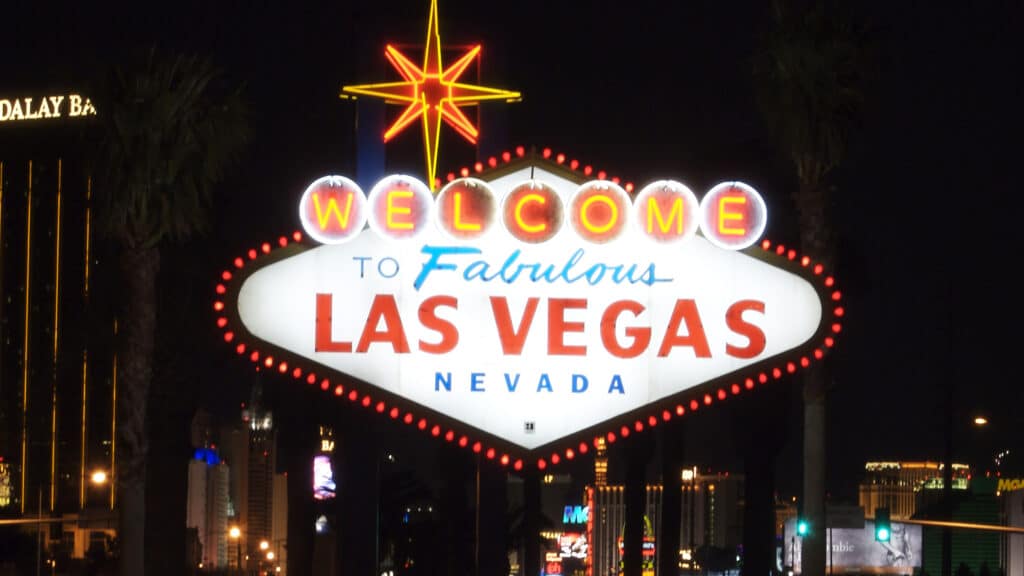Understanding the economic impact of gambling on local economies is crucial for communities and policymakers alike, especially as the gambling industry evolves and expands. This article delves into the multifaceted ways gambling, particularly casino gambling, shapes local economies, examining both the potential benefits and significant drawbacks for the general public, new gamblers, and experienced players.
The Promise of Economic Boost: Job Creation and Revenue Generation
Casino gambling is frequently promoted as a robust economic driver, promising job creation and increased local revenue. Establishing a casino resort can generate numerous jobs, from gaming staff and hospitality to management and security, offering local residents employment opportunities and injecting wages into the local economy, especially beneficial in areas facing economic challenges. Casinos can be a vital source of stable income for many, contributing significantly to a region's economic health, supporting an estimated 1.8 million jobs in the U.S. These roles span a wide spectrum of skills and education levels, from entry-level positions requiring minimal training to highly specialized management and technical roles.
Moreover, casinos are significant generators of tax revenue for both local and state governments. These funds can be directed towards essential public services like education, infrastructure development, and community health services, thereby enhancing the quality of life for residents. In 2023, U.S. casinos contributed $52.7 billion in taxes, which were allocated to fund crucial public services, demonstrating the substantial financial benefit to communities. Some states specifically earmark these revenues for programs aimed at senior services and urban development, ensuring targeted improvements in key social areas. For example, in Pennsylvania, a portion of casino tax revenue is dedicated to the Property Tax Relief Fund, directly reducing the tax burden on homeowners.
Beyond direct financial contributions, casinos act as catalysts for broader economic expansion. They attract tourists and gamblers, boosting local businesses like hotels, restaurants, and retail outlets, creating a vibrant commercial environment. This increased economic activity can spur business growth and diversify the local economy, reducing reliance on single sectors. For instance, small businesses often see increased patronage due to casino-related tourism, fostering a more dynamic and resilient local marketplace. Consider the example of Niagara Falls, Canada, where the establishment of Casino Niagara and Fallsview Casino Resort has significantly revitalized the tourism sector, leading to a surge in hotel occupancy and restaurant revenues throughout the city.
The construction phase of casino resorts also provides a temporary but significant economic stimulus. Large-scale projects require construction workers, materials suppliers, and various support services, injecting considerable capital into the local economy during the development period. This initial investment can create a ripple effect, boosting demand for local goods and services and providing short-term employment opportunities. However, it is crucial to recognize that these construction-related jobs are temporary, and long-term economic benefits depend on the sustained operation and success of the casino after it opens.
The Shadow Side: Social Costs and Economic Drain
Despite the apparent economic advantages, it is critical to consider the negative economic impacts of gambling on local economies. A primary concern is the social costs linked to problem gambling. The expansion of gambling can lead to a rise in problem gambling, resulting in personal bankruptcies, job losses, and greater demand for social support systems, placing a strain on community resources and potentially negating some economic gains from casino revenues. Research indicates a clear link between the presence of casinos and increased rates of problem gambling and associated social issues. Studies have shown that communities with casinos often experience a higher incidence of gambling addiction compared to those without, highlighting the potential social costs.
Problem gambling carries substantial economic consequences. Individuals struggling with gambling addiction may face reduced work performance, increased absences, and potential job termination. This not only destabilizes personal finances but also diminishes overall economic productivity in the community. The financial pressures from gambling addiction can also escalate crime rates as individuals may turn to illegal means to cover debts or fund further gambling, increasing costs for law enforcement and judicial systems. These costs are not always immediately apparent but can significantly impact the long-term economic health of a community. For example, increased crime rates necessitate higher policing costs and can deter other businesses from investing in the area.
Another economic drawback is the inherent financial flow of gambling operations. Casinos are structured to draw funds from gamblers. For every revenue dollar casinos gain, gamblers lose a corresponding amount, often local residents. If a casino's revenue primarily comes from local patrons, it can result in a net outflow of capital from the local economy. This is particularly concerning in lower-income areas, where gambling losses can disproportionately affect vulnerable populations. This effect, known as "substitution," suggests that money spent on gambling could otherwise support diverse local businesses such as retail or entertainment venues. This can lead to a cannibalization of existing local businesses, where spending shifts from local shops and restaurants to the casino, without necessarily increasing overall economic activity in the region.
Furthermore, the concentration of economic activity around a casino can lead to distortions in the local economy. Businesses may become overly reliant on casino patrons, making them vulnerable to fluctuations in the gambling industry or changes in casino operations. This lack of diversification can create economic instability in the long run. Communities that become heavily dependent on casino revenue may face challenges if the casino closes down or if gambling trends shift, leaving them without a robust and diversified economic base.
The Tourist Factor: Attracting Outside Money
The economic effectiveness of casinos significantly depends on whether they attract customers from outside the local area. Casinos that primarily attract tourists are more likely to produce a net positive economic impact. Tourists bring new money into the local economy, which then circulates through various local businesses, creating a multiplier effect. This infusion of external funds can drive substantial economic growth without heavily depending on local residents' spending. For instance, Las Vegas thrives on attracting millions of tourists annually, whose spending supports a vast network of businesses and employment opportunities, demonstrating the power of tourist-driven casino economies.
In contrast, casinos that mainly rely on local gamblers may observe less significant net economic benefits. Although they still generate jobs and tax income, a larger portion of their revenue recirculates existing local funds rather than introducing new capital. In such cases, the economic advantages might be balanced against increased social costs and the economic strain from local gambling losses. Therefore, casino location and marketing strategies are crucial in determining the overall economic benefit to a local community. Casinos designed as tourist destinations, offering extensive entertainment and accommodation options, typically excel at attracting external capital. These destination casinos often include hotels, restaurants, shopping malls, and entertainment venues, creating a comprehensive resort experience that appeals to a broader tourist market.
The success of a casino in attracting tourists depends on various factors, including its location, amenities, marketing, and the overall attractiveness of the destination. Casinos located in established tourist destinations or those that offer unique attractions and experiences are more likely to draw visitors from outside the local area. Effective marketing campaigns that target regional, national, and even international tourists are crucial for maximizing the influx of outside money. Moreover, the integration of the casino resort with other local tourist attractions and infrastructure can enhance its appeal and contribute to a more vibrant tourism ecosystem.
Infrastructure and Development: Long-Term Investments
Developing casino resorts often includes considerable investments in local infrastructure, such as road improvements, utility upgrades, and enhanced public transport. These improvements benefit not only the casino but also the broader community, enhancing residents' quality of life and attracting other businesses and investments. Casinos can sometimes act as catalysts for urban renewal, converting underutilized areas into lively entertainment districts. These long-term infrastructure upgrades can yield lasting economic benefits that extend beyond the casino's operational lifespan. For example, the development of casinos in Detroit, Michigan, was accompanied by significant infrastructure improvements in the surrounding areas, contributing to the revitalization of parts of the city.
However, it's essential to assess who finances these infrastructure improvements. If local governments or taxpayers primarily bear these costs, the economic advantages of the casino must be carefully weighed against public expenditures. Ideally, casino projects should foster partnerships between private operators and public entities, ensuring a clear strategy for financing and managing infrastructure upgrades for broad community benefit. This collaborative approach maximizes positive economic impacts while minimizing financial burdens on local taxpayers. Public-private partnerships can ensure that infrastructure development is aligned with broader community needs and that the costs are shared equitably between the casino operator and the public sector.
Furthermore, the type of infrastructure investments associated with casino development can have varying long-term impacts. Investments in transportation infrastructure, such as improved roads and public transit, can have lasting benefits for the entire community, enhancing accessibility and connectivity. Similarly, upgrades to utilities infrastructure, such as water and sewage systems, can improve the quality of life for residents and support future development. However, investments that are primarily focused on serving the casino itself, such as parking garages or internal roadways, may have less broad community benefit. Therefore, careful planning and prioritization of infrastructure investments are crucial to maximize the long-term positive impacts of casino development.
The Regulatory Landscape: Taxes and Mitigation Measures
The regulatory framework for casino gambling is crucial in defining its economic impact. Government taxes on casino revenues, including tax rates and fund allocation, greatly affect the net economic benefit to communities. Higher tax rates can increase revenue for public services, but excessively high rates might discourage casino investments or reduce local casino industry competitiveness. Striking a balance is essential to optimize tax revenues without hindering economic development. Taxation policies must be carefully calibrated to ensure that casinos contribute a fair share to public coffers without becoming economically unviable or driving operators to seek more favorable regulatory environments.
Moreover, regulations can mandate measures to lessen potential negative social impacts from gambling. These may include funding for problem gambling treatment and prevention, responsible gambling campaigns, and restrictions on casino marketing and operations. Such regulations are vital for minimizing social costs related to gambling and ensuring that economic benefits are not overshadowed by social harm. Effective regulation requires continuous monitoring, assessment, and adaptation to address new challenges and sustain a responsible gambling sector, including adjusting regulations to manage online gambling and its effects on local economies. For instance, mandatory contributions from casino operators to state-run problem gambling support programs are a common regulatory measure aimed at mitigating social costs.
Responsible gambling initiatives, often mandated by regulations, play a crucial role in minimizing the negative social impacts of casino gambling. These initiatives can include age verification systems, self-exclusion programs, responsible advertising guidelines, and employee training on identifying and assisting problem gamblers. Effective responsible gambling programs require ongoing investment and evaluation to ensure they are reaching those in need and achieving their intended outcomes. Furthermore, collaboration between regulators, casino operators, and problem gambling support organizations is essential for developing and implementing comprehensive and effective responsible gambling strategies.
Community Context: Varying Impacts Across Locations
The economic impact of gambling differs significantly across various locations, depending on local economic and community characteristics. In economically challenged regions with high unemployment, a casino can be a vital economic stimulus, creating jobs and attracting investment. In wealthier areas with diverse economies, the impact might be less significant, and potential negative social consequences may face greater scrutiny. Rural communities might experience different effects than urban centers; rural casinos could attract customers from broader regions but also face specific infrastructure and service challenges. For example, in rural Mississippi, casinos have become a significant source of employment and revenue in areas that previously relied heavily on agriculture or manufacturing.
A community's existing economic structure is also critical. Communities overly dependent on a single industry may be more susceptible to economic downturns, making casino revenue a beneficial diversification source. However, over-reliance on casino revenue can create vulnerabilities, as the gambling industry is subject to economic shifts and changing consumer tastes. A balanced, diverse local economy is generally more resilient and sustainable long-term. Therefore, communities should carefully consider how casino development aligns with their broader economic development goals. Communities should conduct thorough economic impact studies and community consultations before making decisions about casino development to ensure that it aligns with their long-term vision and priorities.
The social and cultural context of a community also influences the impact of casino gambling. Communities with strong social cohesion and established support networks may be better equipped to mitigate the potential negative social consequences of gambling. Conversely, communities with pre-existing social problems or limited resources may be more vulnerable to the adverse effects of increased gambling. Cultural attitudes towards gambling also vary significantly across different regions and communities, influencing both the acceptance of casino development and the potential for problem gambling. Understanding the specific social and cultural context is essential for assessing the potential impacts of casino gambling and developing appropriate mitigation strategies.
The Evolving Gambling Landscape: Online and Beyond
The gambling industry is continuously changing, marked by the rapid expansion of online gambling and new gaming technologies. Online casinos and sports betting platforms present both opportunities and challenges for local economies. While online gambling might generate some tax revenue, it typically creates fewer local jobs compared to traditional casinos. Furthermore, the accessibility of online gambling may worsen problem gambling, potentially increasing social costs. The economic impact of online gambling is still under investigation, and governments are working to effectively regulate and tax this fast-growing sector. The increase in mobile gambling further complicates regulation and necessitates innovative strategies for responsible gambling and consumer protection. The COVID-19 pandemic accelerated the shift towards online gambling, highlighting the need for updated regulatory frameworks to address the unique challenges and opportunities of this digital landscape.
Looking forward, integrating technologies like virtual reality (VR) and augmented reality (AR) into gambling could further transform the industry and its economic impacts. VR casinos could offer immersive gambling experiences, blurring lines between online and land-based casinos, creating new regulatory and economic challenges and opportunities. The long-term social and economic consequences of these technological advancements remain uncertain, underscoring the need for continuous research, policy adjustments, and community involvement. As gambling evolves, a proactive, informed approach is crucial to maximize economic benefits and minimize potential harms. The metaverse and blockchain technologies also present potential future disruptions to the gambling industry, requiring ongoing monitoring and adaptation by regulators and communities.
The expansion of sports betting, particularly online sports betting, represents another significant trend in the evolving gambling landscape. The legalization of sports betting in many jurisdictions has created new revenue streams for governments and gambling operators, but also raises concerns about increased gambling participation and potential problem gambling issues. The ease of access to online sports betting, coupled with the constant barrage of advertising and promotional offers, may contribute to increased gambling-related harm. Regulators are grappling with how to balance the economic benefits of sports betting with the need to protect consumers and minimize social costs. This includes exploring measures such as responsible advertising guidelines, deposit limits, and enhanced responsible gambling resources.
Conclusion: Balancing Economic Gains with Social Responsibility
The economic impact of gambling on local economies is a complex calculation involving both potential benefits and risks. While casinos can drive job creation, generate tax revenue, and boost local business, they also pose risks of social costs from problem gambling and economic losses from local spending. The ultimate economic impact varies based on factors like customer origin, regulation, community context, and industry evolution. For new gamblers, the allure of quick wins and entertainment should be balanced with an awareness of the potential risks of problem gambling. Experienced gamblers recognize these risks but must maintain responsible gambling habits. Effectively leveraging gambling's economic benefits while controlling social costs requires a balanced strategy focused on responsible gambling, robust regulation, and community welfare. This necessitates ongoing dialogue among casino operators, policymakers, researchers, and community members to ensure a sustainable, responsible gambling sector that contributes positively to local economies without sacrificing social values. Moving forward, communities must prioritize comprehensive strategies that not only maximize economic opportunities but also safeguard the well-being of their residents and mitigate the potential harms associated with gambling expansion. This holistic approach is essential for ensuring that the gambling industry serves as a responsible and sustainable contributor to local economies.
External Resources:



